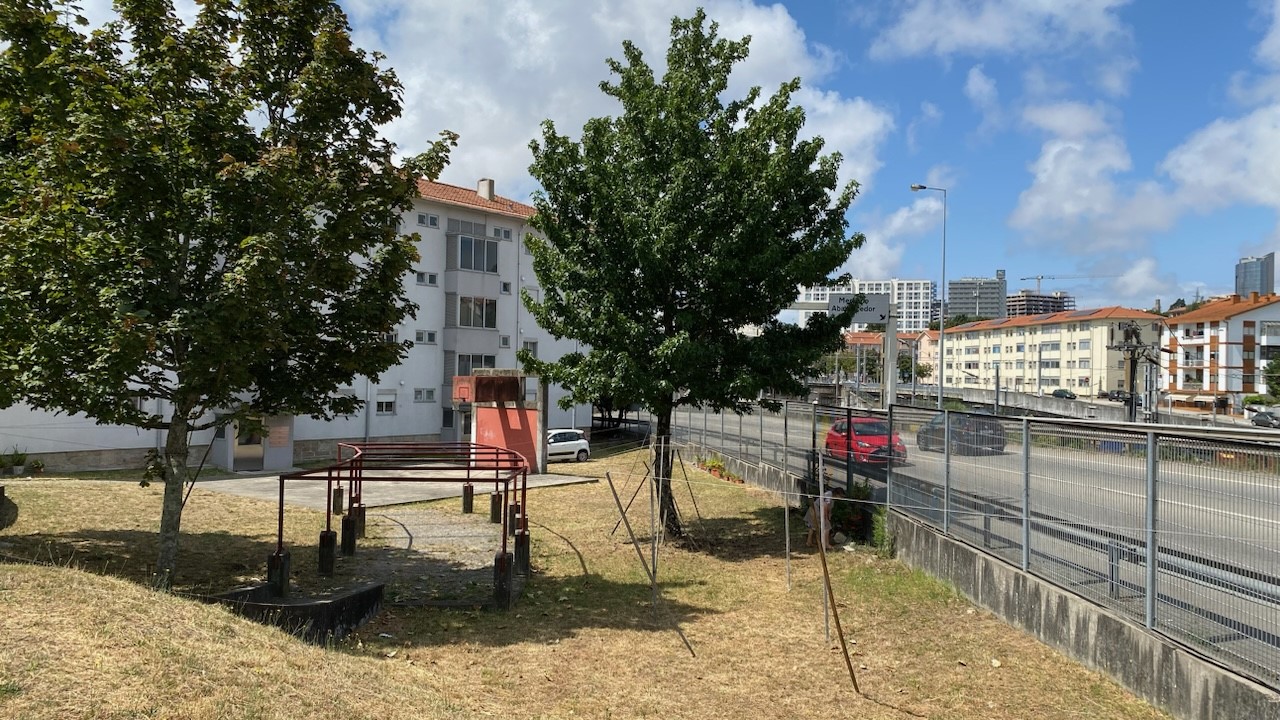CAOP
Climate adaptation for older people living in vulnerable urban areas
Designing a climate-responsive and community-based methodology

Climate adaptation for older people living in vulnerable urban areas
Start Year
2022 (On going)
Duration
36 months
Principal Investigator
Fernando Alves
Co-principal Investigator
Elisio Manuel Sousa Costa
Funding Entity
FCT, Fundação para a Ciência e a Tecnologia
Funding Value
249.703,22 euros
62.000,00 euros (FAUP)
Project Reference
PTDC/GES-URB/2038/2021
Proposing Institution
Faculdade de Engenharia da Universidade do Porto
Partner Institutions
Universidade de Coimbra
Faculdade de Arquitectura da Universidade do Porto
Faculdade de Farmácia da Universidade do Porto
Research Units
Centro de Investigação do Território, Transportes e Ambiente (CITTA/FE/UP)
Centro de Competências em Envelhecimento Ativo e Saudável (Porto4Ageing)
Centro de Estudos de Arquitectura e Urbanismo (CEAU/FA/UP)
Abstract
The worst effects of Climate Change on the lives of the Planet and Humanity, as we know them, continue to be observed globally, with a tendency to increase in number and in risk. Phenomena such as global warming, humanitarian crises and (in)sustainability and (in)security of socio-environmental systems are increasingly frequent and dangerous. Political and socio-environmental agencies (United Nations, Greenpeace), scientific research and civil society (young activist Greta Thunberg) have been alerting to the need to approach Climate Change as a complex and heterogeneous phenomenon (multidimensional). Complex, because the negative effects of Climate Change on Human Life are directly related to the effects of Human Life on the Planet, in particular, on the Climate. Heterogeneous, because this complex relationship affects, in a differentiated and unequal way, places, communities and populations, worsening when associated with other risk factors (poverty, malnutrition, fragility, isolation). In the face of this problem, the development of solutions to mitigate and reverse these adverse effects has been a priority with different expressions and from different fields (politics, science, economy, civil society, NGOs). Therefore, there is a desirable conjuncture for an investigation like the one of the Project “CLIMATE ADAPTATION FOR OLDER PEOPLE LIVING IN VULNERABLE URBAN AREAS. Designing a Climate-Responsive and Community-based Methodology”. These reasons have led a multidisciplinary group of researchers and research centers from the University of Porto and the University of Coimbra, supported by an international team of experts, to present a research plan that contributes to the mitigation and reversal of these adverse effects by studying the effects of Climate Change on the health, quality of life and socioeconomic condition of older people living in vulnerable urban areas, using the results of this study to develop a climate responsive and community based urban planning/design methodology. Specifically, this team intends: to understand the morphological and socio-urban conditions of vulnerable urban areas, located in the Metropolitan Area of Porto, in a context of public investment in urban regeneration in areas and communities classified as disadvantaged or degraded; to understand the practices, perspectives and representations that older populations have about these urban spaces; and to create and evaluate a collaborative and integrative (Climate, Places, People, Agencies) urban planning/design methodology that increases the resilience of public spaces (urban / green), making them more friendly to older people. In the short term (project execution time), a Handbook for a Climate-Responsive and Community-Based Urban Planning/Design will be created in this research, which will empower local stakeholders with powers and functions in urbanism (municipalities, parish councils, companies, organizations, associations, universities), to promote resilient public spaces with high thermal comfort level, in a context of co-creation and participation of older people. This work to create and evaluate the Hanbook will give rise to a morphological, socio-urbanistic and ethnographic database, which the research team will use to enrich scientific research (publications, communications) and higher academic training (Master, PhD, Post-Graduation) in the fields of Climate Change, Aging, Bioclimatic Urban Design, Health and Quality of Life. In the medium and long term (post-project), the research team believes that the handbook developed will be replicated by a wide number of agents (national / international), in order to mitigate the adverse effects of Climate Change, promoting inclusive, safe, resilient and sustainable cities and communities, with direct benefits in the life and well-being of all and all ages.
Keywords
Climate change; Aging; Bioclimatic urban design; Health and quality of life
Team
Fernando Alves (Investigador Responsável)
Faculdade de Engenharia da Universidade do Porto
Elisio Costa (Co-Investigador Responsável)
Faculdade de Farmácia da Universidade do Porto
Ana Fernandes
Faculdade de Arquitectura da Universidade do Porto
Ana Silva
Universidade de Coimbra
Anabela Ribeiro
Universidade de Coimbra
Cecilia Rocha
Faculdade de Engenharia da Universidade do Porto
João Martins
Luís Midão
Faculdade de Farmácia da Universidade do Porto
Gisela Lameira
Faculdade de Arquitectura da Universidade do Porto
Helena Corvacho
Faculdade de Engenharia da Universidade do Porto
Marta Almada
Faculdade de Farmácia da Universidade do Porto
Paulo Conceição
Faculdade de Engenharia da Universidade do Porto
Paulo Conceição
CINTESIS/ICBAS
Rui Ramos
Faculdade de Arquitectura da Universidade do Porto
Sara Cruz
Faculdade de Engenharia da Universidade do Porto